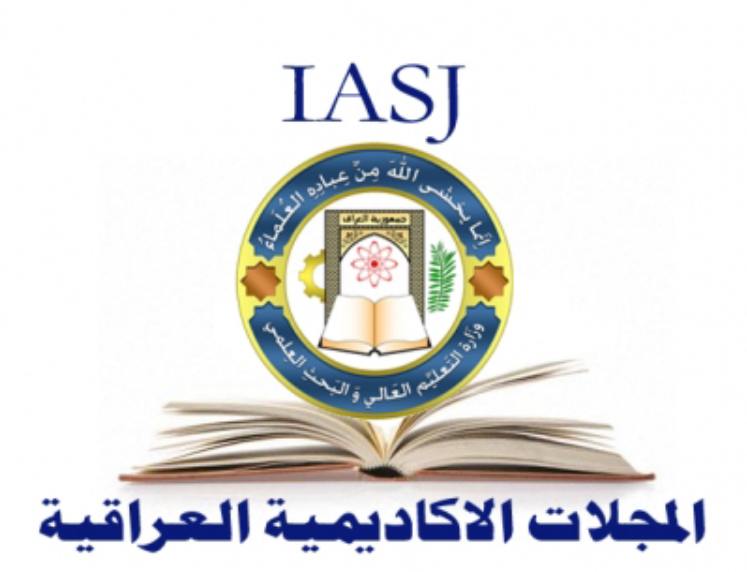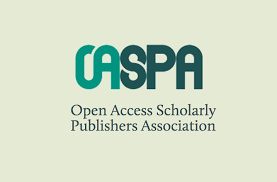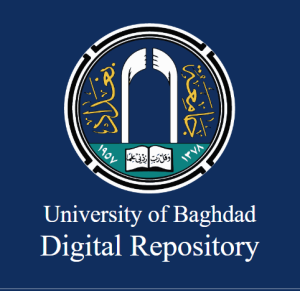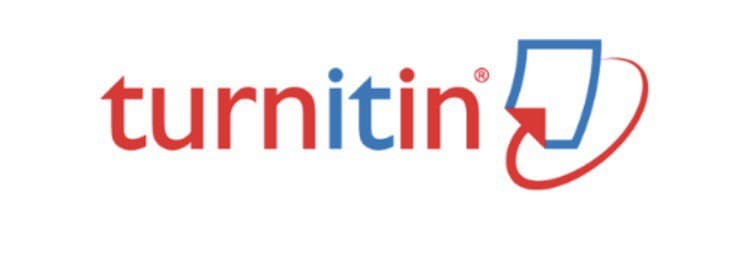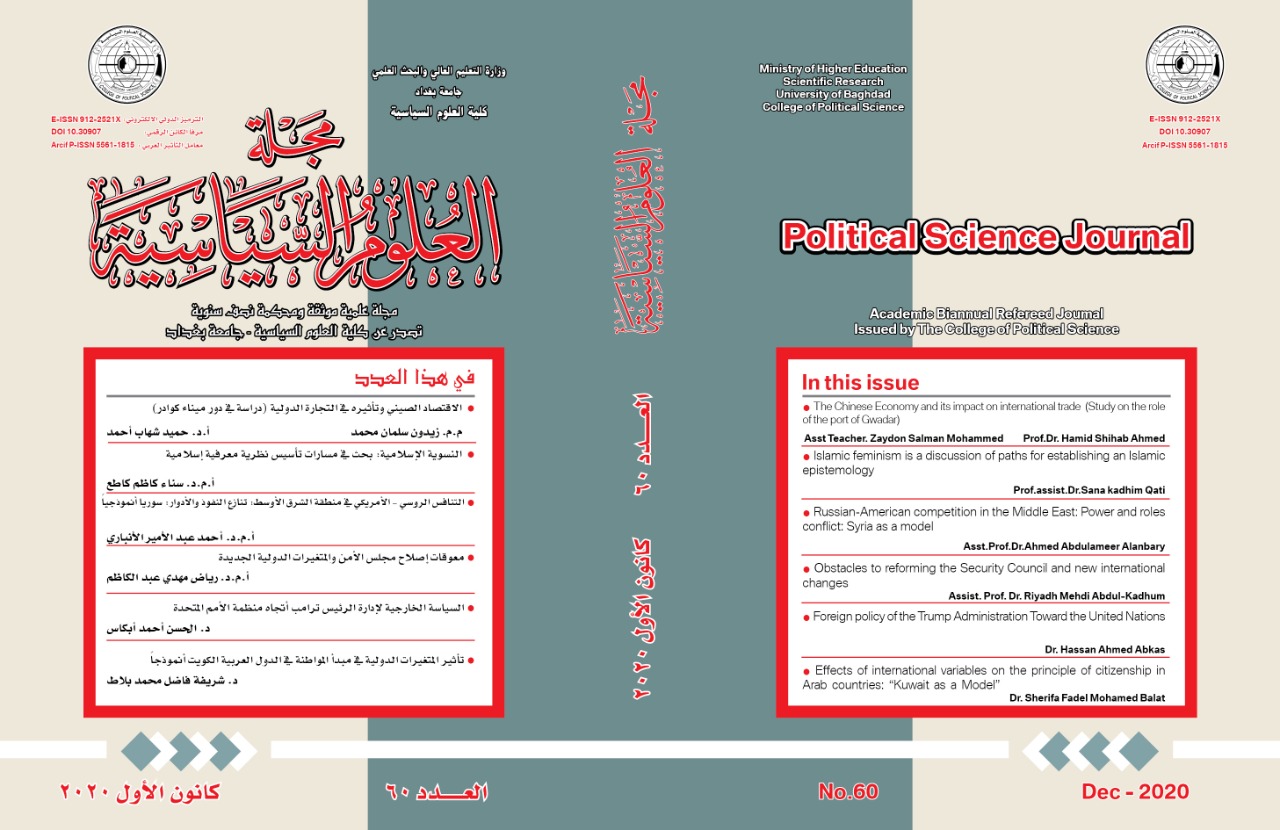المرتكزات الفكرية السياسية للمجتمع المفتوح عند كارل بوبر
DOI:
https://doi.org/10.30907/jj.v0i59.461الكلمات المفتاحية:
المجتمع المفتوح. السلطة. التاريخية. الليبرالية. الحرية. العدالةالملخص
يحاول هذا البحث دراسة المرتكزات الفكرية السياسية للمجتمع المفتوح عند المفكر البريطاني من أصل نمساوي كارل بوبر (1902-1994)، تم في المبحث الأول التطرق الى دلالة المجتمع المفتوح والمجتمع المغلق عند كارل بوبر، بينما في المبحث الثاني تمت دراسة الهندسة الاجتماعية اليوتوبية والتدرجية، في حين تم في المبحث الثالث دراسة النزعة العقلانية والحرية والفردية وكذلك ديمقراطية المساواة.
المراجع
أكمل بوبر دراسته للدكتوراه عام 1928م في الفلسفة، ليتخصص في مجال فلسفة العلوم، وخلال 1935-1936م زار بوبر انكلترا وأُعجب كثيراً بمساحة الحرية الموجودة فيها، حتى أنه أعترف أن مصطلح "المجتمع المفتوح" جاء من خلال تلك الرحلة التي انكلترا، ثم عاد الى النمسا ليغادرها مرة تجاه نيوزلندا عام 1937م ليعمل أستاذاَ للفلسفة في جامعة كانتربري حتى عام 1945م، لينتقل بعدها الى بريطانيا ويستقر فيها فيعمل أستاذاً للمنطق في جامعة لندن حتى عام 1949م، بعد ذلك أستاذاً للمنطق ومناهج العلوم بمدرسة لندن للاقتصاد حتى عام 1969م، ويستمر في مواصلة التدريس والبحث في مختلف المؤسسات التعليمية البريطانية، حتى أن ملكة بريطانيا منحته عام 1965م لقب "سير Sir" وهو لقب يقدم لمن يقدم خدمات كبيرة للمملكة المتحدة، وقد كتب بوبر كماً كبيراً من الكتب، من أهمها:
"منطق الكشف العلمي" (1934م) و "فقر المذهب التاريخاني" (1936م) و "المجتمع المفتوح وأعداؤه" (1945م) و "بحثاً عن عالم أفضل" (1984م) و "درس القرن العشرين" (1992م).
يُنظر: كارل بوبر، درس القرن العشرين، ترجمة: الزواوي بغورة ولخضر مذبوح، ط1 1429هـــ/2008م، الدار العربية للعلوم (ناشرون)، بيروت، ص ص 8-19-20.
كارل بوبر، بحثاً عن عالمٍ أفضل، ترجمة: أحمد مستجير، ط1 1999م، الهيئة المصرية العامة للكتاب، القاهرة، ص108.
كارل بوبر، في الحرية والديمقراطية، ترجمة: عقيل يوسف عيدان، ط1 2009م، مركز الحوار للثقافة (تنوير)، الكويت، ص17-18. محمد قاسم محمد، نظرية المعرفة في ضوء المنهج العلمي، ط1 1986م، دار المعرفة الجامعية، الإسكندرية، ص20. خوني ضيف الله، المنهج النقدي عند كارل بوبر، رسالة ماجستير (غير منشورة) قسم الفلسفة، كلية العلوم الإنسانية والاجتماعية، الجزائر، ص10.
Karl Popper and Herbert Marcuse, Revolution or Reform, Edited by; A.T. Ferguson, 2nd Edition 1985, New University Press,London, p78.
)) كارل بوبر، المجتمع المفتوح أعداؤه، ترجمة: السيد نفادي، ط1 2014م، التنوير للطباعة والنشر والتوزيع، القاهرة، ج1 ص286.
)) المصدر السابق، نفس الجزء والصفحة.
)) Karl Popper and Herbert Marcuse, Revolution or Reform, Edited by; A.T. Ferguson, 2nd Edition 1985, New University Press ,London, p78.
)) Mehmet Polat, Karl Popper's Open society and Closed society in the context of the EU, The Human Rights Review Magazine, Vol II , June 2012 , Issue 1, p2.
)) كارل بوبر، المجتمع المفتوح وأعداؤه، مصدر سبق ذكره، ج1 ص103.
)) للتوسع حول أطوار الدولة وأجيالها عند إبن خلدون، يُنظر: جميل حمداوي، نظرية الدولة عند إبن خلدون، ط1 2000م، مركز رقي للنشر والتوزيع، بيروت، ص143 وما بعدها.
)) كارل بوبر، المجتمع المفتوح وأعداؤه، مصدر سبق ذكره، ج1 ص288.
)) David William, Freedom and Democracy in Western World, 1st Edition, Lodvage Printing Home, London, p52.
)) George Franklyn, The Open and Closed Society, The Contemporary Thought Magazine, Vol IV April 2014 p321.
)) كارل بوبر، أسطورة الإطار، في دفاعٍ عن العلم والعقلانية، ترجمة: يمنى طريف الخولي، سلسلة عالم المعرفة (292)، المجلس الوطني للثقافة والفنون والآداب، الكويت، ص162.
)) محمد أمين فضل، الاتجاهات النظرية في الدراسات التاريخية، ط1 2015م، نشر مركز المودة للدراسات والنشر والتوزيع، قم المقدسة، ص132.
مفكر وفيلسوف ومؤرخ إيطالي، حاول تطبيق المنهج العلمي على دراسة التأريخ، حيث كان رأيه في تطور الحضارة أن المجتمع قد إجتاز مراحل ثلاثاً: الدينية (الثيوقراطية)، والارستقراطية التي تبرز فيها البطولة، والديمقراطية/الإنسانية، وأن كل مرحلة تحمل في طياتها عناصر إنحلالها، وكان فيكو يشعر بالعزلة بوصفه أستاذاُ جامعياً مغموراً في مدينة نابولي، يجاهد، بشق الأنفس، للبقاء على قيد الحياة وهو في صراع مرير مع الكنيسة والبيئة المحيطة به مباشرة، له مجموعة من المؤلفات أبرزها كتاب "العلم الجديد" ، أنظر: إدوارد سعيد، المثقف والسلطة، ترجمة: محمد عناني، ط1 2006م، رؤية للنشر والتوزيع، القاهرة، ص112، كذلك: زكي نجيب محمود وآخرون، الموسوعة العربية الميسرة، (7) أجزاء، ط1 2010م، شركة أبناء شريف للطباعة والنشر والتوزيع، 2010م، القاهرة، ج5ص 2504.
)) كارل بوبر، بؤس الايديولوجيا، نقد مبدأ الأنماط في التطور التاريخي، ترجمة: عبد الحميد صبرة، ط1 1992م، دار الساقي، بيروت، ص13.
)) كارل بوبر، درس القرن العشرين، ترجمة: الزواوي بغورة ولخضر مذبوح، ط1 1429هـــ/2008م، الدار العربية للعلوم (ناشرون)، بيروت، ص70.
)) كارل بوبر، المجتمع المفتوح وأعداؤه، مصدر سبق ذكره، ج1 ص99.
)) المصدر السابق، نفس الجزء ص 47.
)) كارل بوبر، درس القرن العشرين، مصدر سبق ذكره، ص89.
)) وِل ديورانت، قصة الفلسفة من أفلاطون الى جون ديوي، ترجمة: فتح الله محمد، ط1 1424هـــ/2004م، مكتبة المعارف، بيروت، ص12، كذلك:
Karl Popper and Herbert Marcuse , op.cit, p94.
)) لورسي عبد القادر، محددات البحث العلمي وضوابطه في ضوء التصويبات العقلانية لكارل بوبر، مجلة "دراسات نفسية وتربوية" العدد 10، 2013م، الجزائر، ص133.
)) كارل بوبر، المجتمع المفتوح وأعداؤه، ترجمة: حسام نايل، ط1 2014م، التنوير للطباعة والنشر والتوزيع، القاهرة، ج2 ص133.
)) كارل بوبر، المجتمع المفتوح وأعداؤه، مصدر سبق ذكره، ج2 ص203.
)) المصدر السابق، ج1 ص 260.
)) Wesley Thomson, The Utopia and state, 1st Edition, Yeal T,I University Press, U.S.A 2010, p184.
)) Ibid, p186.
)) كارل بوبر، المجتمع المفتوح وأعداؤه، مصدر سبق ذكره، ج1 ص263.
)) المصدر السابق، ج1 ص 264.
)) المصدر السابق، نفس الجزء والصفحة.
)) كارل بوبر، الحياة بأسرها حلول لمشاكل، ترجمة: بهاء درويش، ط1 1998م، منشأة المعارف، الإسكندرية، ص 197.
)) كارل بوبر، في الحرية والديمقراطية، مصدر سبق ذكره، ص45.
)) فرانسيس فوكوياما، نهاية التاريخ والإنسان الأخير، ترجمة: فؤاد شاهين وآخرون، ط1 1993م، مركز الإنماء القومي، بيروت، ص23 وما بعدها.
)) كارل بوبر، المجتمع المفتوح وأعداؤه، مصدر سبق ذكره، ج1 ص49.
)) كارل بوبر، بؤس الايديولوجيا، مصدر سبق ذكره، ص80.
)) كارل بوبر، المجتمع المفتوح وأعداؤه، مصدر سبق ذكره، ج1 ص261.
)) المصدر السابق، ج1 ص52.
)) John Stewart, The Philosophy of Science in Twentieth Century, 1st Edition, ULTra Scoerz University, Paris, 2012. P68
)) كارل بوبر، بحثاً عن عالمٍ أفضل، مصدر سبق ذكره، ص152.
)) كارل بوبر، المجتمع المفتوح وأعداؤه، مصدر سبق ذكره، ج2 ص324.
)) كارل بوبر، أسطورة الإطار، مصدر سبق ذكره، ص216.
)) المصدر السابق والصفحة.
)) كارل بوبر، المجتمع المفتوح وأعداؤه، مصدر سبق ذكره، ج2 ص327.
)) المصدر السابق ج2 ص331.
)) كارل بوبر، في الحرية والديمقراطية، مصدر سبق ذكره، ص34.
)) كارل بوبر، المجتمع المفتوح وأعداؤه، مصدر سبق ذكره، ج2 ص342.
)) كارل بوبر، في الحرية والديمقراطية، مصدر سبق ذكره، ص30.
)) كارل بوبر، المجتمع المفتوح وأعداؤه، مصدر سبق ذكره، ج2 ص324.
)) المصدر السابق، ص285.
)) كارل بوبر، الحياة بأسرها حلول لمشاكل، مصدر سبق ذكره، ص234.
)) كارل بوبر، درس القرن العشرين، مصدر سبق ذكره، ص58.
)) كارل بوبر، المجتمع المفتوح وأعداؤه، مصدر سبق ذكره، ج1 ص186.
)) Karl Popper and Herbert Marcuse , op.cit, p87
)) كارل بوبر، المجتمع المفتوح وأعداؤه، مصدر سبق ذكره، ج1 ص168.
)) المصدر السابق ج1ص169.
)) كارل بوبر، المجتمع المفتوح وأعداؤه، مصدر سبق ذكره، ج2 ص226.
)) المصدر السابق، ج1 ص208.
)) كارل بوبر، درس القرن العشرين، مصدر سبق ذكره، ص60.
)) كارل بوبر، المجتمع المفتوح وأعداؤه، مصدر سبق ذكره، ج1 ص92.
)) المصدر السابق، ج2 ص339.
)) المصدر السابق، ج1 ص161.
)) المصدر السابق، ج2 ص337.
)) كارل بوبر، درس القرن العشرين، مصدر سبق ذكره، ص76.
)) كارل بوبر، المجتمع المفتوح وأعداؤه، مصدر سبق ذكره، ج2 ص238.
)) كارل بوبر، الحياة بأسرها حلول مشاكل، مصدر سبق ذكره، ص 218.
)) المصدر السابق، ص219.
))Karl Popper and Herbert Marcuse , op.cit, p78.
Karl Raymond Popper was born in the Austrian capital Vienna in 1902 AD, from parents of Jewish descent who converted to Protestant Lutheran Christianity. What was in it was influenced at the beginning of his life by the socialist trend, and Marxism in particular, as he found it more responsive to its young aspirations, especially the speeches of Leon Trotsky (1879-1940 AD) that were arousing his enthusiasm, and he was involved in the Society of the Communist Student Socialist School, but in 1919 AD, soon after By taking advantage of the tragedies of war and the anxious questions it left behind in his fossilized mind, World War I, Popper began practicing critical thinking and posed questions that did not satisfy stereotypical or traditional answers. To the conviction of abandoning Marxism, and to transfer his faith to liberal capitalist thought, then Popper began to identify the psychological theories of both Sigmund Freud (1856-1939 AD) and Alfred Adler (1870-1937 AD), then one day he listened to a scientific lecture Lalbert Einstein (1879-1955) on the theory of relativity delivered it in Vienna, and he was greatly admired and influenced by Einstein's critical mindset and absent from Karl Marx, Freud and Adler.
Popper completed his doctorate in 1928 in philosophy, to specialize in the field of philosophy of science, and during 1935-1936 CE Popper visited England and was greatly impressed by the space of freedom in it, so he recognized that the term "open society" came through that trip that England, then returned to Austria To leave it once towards New Zealand in 1937 AD to work as a professor of philosophy at the University of Canterbury until 1945 AD, and then move to Britain and settle in it to work as a professor of logic at the University of London until 1949 AD, then professor of logic and curricula at the London School of Economics until 1969 AD, and continues to continue teaching and research In various British educational institutions, even in 1965, the Queen of Britain awarded him the nickname "Sir", a title offered to those who provide great services to the United Kingdom. Popper has written a large number of books, the most important of which are:
“The Logic of Scientific Discovery” (1934 AD), “Poverty of Historical Doctrine” (1936 AD), “Open Society and Its Enemies” (1945 AD), “In Search of a Better World” (1984) and “Lesson of the Twentieth Century” (1992 AD).
See: Karl Popper, lesson of the twentieth century, translation: Al-Zawawi with Ghora and Lakhdar Mazlouh, 1st edition 1429 AH / 2008 AD, Arab Science House (publishers), Beirut, pp. 8-19-20.
Carl Popper, In Search of a Better World, translation: Ahmed Mostajir, ed. 1 1999 CE, The Egyptian General Book Authority, Cairo, p. 108.
Karl Popper, On Freedom and Democracy, translation: Aqeel Yousef Idan, 1st edition 2009 AD, Al-Hiwar Center for Culture (Tanweer), Kuwait, pp. 17-18. Muhammad Qasim Muhammad, knowledge theory in the light of the scientific method, 1st edition 1986 AD, University Knowledge House, Alexandria, p. 20. Khouni Dhaifallah, The Critical Curriculum of Karl Popper, Master Thesis (unpublished) Department of Philosophy, Faculty of Humanities and Social Sciences, Algeria, p. 10.
Karl Popper and Herbert Marcuse, Revolution or Reform, Edited by; A.T. Ferguson, 2nd Edition 1985, New University Press, London, p78.
i. Karl Popper, His Open Society His Enemies, translation: Mr. Navadi, 1st edition 2014 AD, Al-Tanweer Printing, Publishing and Distribution, Cairo, vol. 1, p. 286.
ii. Previous source, same part and page.
iii. Karl Popper and Herbert Marcuse, Revolution or Reform, Edited by; A.T. Ferguson, 2nd Edition 1985, New University Press, London, p78.
iv. Mehmet Polat, Karl Popper's Open society and Closed society in the context of the EU, The Human Rights Review Magazine, Vol II, June 2012, Issue 1, p2.
v. Carl Popper, The Open Society and Its Enemies, aforementioned source, vol. 1, p. 103.
vi. To expand on the phases of the state and its generations at Ibn Khaldun, see: Jamil Hamdaoui, Theory of the State at Ibn Khaldun, 1st edition 2000 AD, Ruqi Center for Publishing and Distribution, Beirut, pp. 143 and beyond.
vii. Karl Popper, The Open Society and Its Enemies, aforementioned source, vol. 1, p. 288.
viii. David William, Freedom and Democracy in Western World, 1st Edition, Lodvage Printing Home, London, p52.
ix. George Franklyn, The Open and Closed Society, The Contemporary Thought Magazine, Vol IV April 2014 p321.
x. Karl Popper, The Myth of Framing, In Defense of Science and Rationality, translation: Yamna Tarif El-Khouly, World of Knowledge Series (292), The National Council for Culture, Arts and Letters, Kuwait, p. 162.
xi. Muhammad Amin Fadl, Theoretical Trends in Historical Studies, 1st edition 2015 AD, published by Al-Mawaddah Center for Studies, Publishing and Distribution, Qom Al-Qudsah, p. 132.
An Italian thinker, philosopher and historian, who tried to apply the scientific method to the study of history, as his opinion on the development of civilization was that society has passed three stages: religious (theocratic), and aristocratic in which heroism emerges, and democracy / humanity, and that each stage carries elements Its dissolution, and Fico felt isolated as an undergraduate university professor in the city of Naples, struggling hard to survive while in a bitter struggle with the Church and the environment directly surrounding him, he has a collection of books, most notably the book "The New Science", see: Edward Said, The Intellectual and the Authority, Translation: Muhammad Anani, 1st edition of 2006 AD, Vision for Publishing and Distribution, Cairo, p. 112, as well: Zaki Naguib Mahmoud and others, The Facilitated Arabic Encyclopedia, (7) parts, 1st edition of 2010 AD, Sons of Sharif Company for Printing, Publishing and Distribution, 2010AD, Cairo, C5P. 2504.
i. Karl Popper, Misery of Ideology, Criticism of the Principle of Patterns in Historical Development, translation: Abdel Hamid Sabra, 1st edition 1992 AD, Dar Al-Saqi, Beirut, p. 13.
Karl Popper, lesson of the twentieth century, translation: Al-Zawawi with Ghora and Lakhdar Mazlouh, 1st edition 1429 AH / 2008 AD, Arab Science House (publishers), Beirut, p. 70.
Carl Popper, The Open Society and Its Enemies, aforementioned source, vol. 1, p. 99.
ii. Ibid., Same part, p. 47.
Karl Popper, A Study of the Twentieth Century, a previously mentioned source, p. 89.
iii. Durant, The Story of Philosophy from Plato to John Dewey, translation: Fathallah Muhammad, 1st floor 1424 AH / 2004 AD, Al-Maaref Library, Beirut, p. 12, as well:
Karl Popper and Herbert Marcuse, op.cit, p94.
iv. Lorsi Abdel-Kader, the limitations of scientific research and its controls in the light of the rational corrections of Karl Popper, "Journal of Psychological and Educational Studies" Issue 10, 2013 AD, Algeria, p. 133.
v. Karl Popper, The Open Society and Its Enemies, translation: Hossam Nile, 1st edition 2014 AD, Al-Tanweer Printing, Publishing and Distribution, Cairo, Vol. 2, p. 133.
vi. Karl Popper, The Open Society and Its Enemies, aforementioned source, vol. 2, p. 203.
vii. Previous source, Part 1, p. 260.
viii. Wesley Thomson, The Utopia and state, 1st Edition, Yeal T, I University Press, U.S.A. 2010, p184.
ix. Ibid, p186.
x. Carl Popper, The Open Society and Its Enemies, aforementioned source, vol. 1, p. 263.
xi. Previous source, Part 1, p. 264.
xii. Previous source, same part and page.
xiii. Karl Popper, Whole Life Solutions to Problems, Translation: Bahaa Darwish, 1st edition 1998 AD, Al-Ma'arif Establishment, Alexandria, p. 197
xiv. Karl Popper, On Freedom and Democracy, above-mentioned source, p. 45.
xv. Francis Fukuyama, The End of History and the Last Man, translation: Fouad Shaheen et al., 1st edition 1993 AD, National Development Center, Beirut, pp. 23 and beyond.
xvi. Karl Popper, The Open Society and Its Enemies, aforementioned source, vol. 1, p. 49.
xvii. Karl Popper, Misery of Ideology, previously mentioned source, p. 80.
xviii. Carl Popper, The Open Society and Its Enemies, aforementioned source, vol. 1, p. 261.
xix. The previous source, vol. 1, p. 52.
xx. John Stewart, The Philosophy of Science in Twentieth Century, 1st Edition, ULTra Scoerz University, Paris, 2012. P68.
xxi. Karl Popper, In Search of a Better World, previously cited, p. 152.
xxii. Karl Popper, The Open Society and Its Enemies, aforementioned source, vol. 2, p. 324.
xxiii. Carl Popper, The Myth of Tire, a source previously cited, p. 216.
xxiv. Previous source and page.
xxv. Karl Popper, The Open Society and Its Enemies, aforementioned source, vol. 2, p. 327.
xxvi. )) Previous source, Part 2, p. 331.
xxvii. Karl Popper, On Freedom and Democracy, op. Cit., P. 34.
xxviii. Karl Popper, The Open Society and Its Enemies, aforementioned source, vol. 2, p. 342.
xxix. Karl Popper, On Freedom and Democracy, op. Cit., P. 30.
xxx. Karl Popper, The Open Society and Its Enemies, aforementioned source, vol. 2, p. 324.
xxxi. The previous source, p. 285.
xxxii. Carl Popper, Whole Life Solutions to Problems, Previous Source, p. 234.
xxxiii. Karl Popper, A Study of the Twentieth Century, a previously mentioned source, p. 58.
xxxiv. Karl Popper, The Open Society and Its Enemies, aforementioned source, vol. 1, p. 186.
xxxv. Karl Popper and Herbert Marcuse, op.cit, p87
xxxvi. Karl Popper, The Open Society and Its Enemies, aforementioned source, vol. 1, p. 168.
xxxvii. The previous source, Part 1, p. 169.
xxxviii. Karl Popper, The Open Society and Its Enemies, aforementioned source, vol. 2, p. 226.
xxxix. Previous source, Part 1, p. 208.
xl. Karl Popper, A Study of the Twentieth Century, a previously mentioned source, p. 60.
xli. Karl Popper, The Open Society and Its Enemies, aforementioned source, vol. 1, p. 92.
xlii. Previous source, vol. 2, p 339.
xliii. The previous source, Part 1, p. 161.
xliv. Previous source, vol. 2, p. 337.
xlv. Karl Popper, A Study of the Twentieth Century, a previously mentioned source, p. 76.
xlvi. Karl Popper, The Open Society and Its Enemies, aforementioned source, vol. 2, p. 238.
xlvii. Karl Popper, Whole Life, Problem Solving, Ibid., P. 218.
xlviii. The previous source, p. 219.
xlix. Karl Popper and Herbert Marcuse, op.cit, p78.





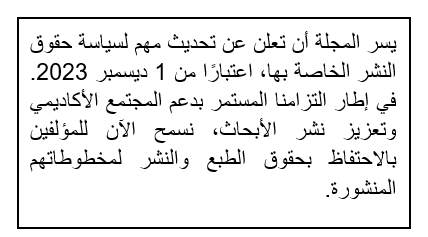
 ©️ 2023 The Author(s). Published by College of Political Science, University of Baghdad. This is an Open Access article distributed under the terms of the
©️ 2023 The Author(s). Published by College of Political Science, University of Baghdad. This is an Open Access article distributed under the terms of the 
